
As the United Nations marks its 80th anniversary in 2025, this report by the Department of Economic and Social Affairs (UN DESA) traces the evolution of sustainable development within the UN system. It highlights the organization’s role in shaping both the understanding and the practical application of sustainable development.

The UN DESA Annual Highlights report is a tool to communicate the contributions of the Department to the realization of internationally agreed development goals and shared social, economic, and environmental aspirations. It showcases the Department’s role in gauging trends, building capacities, and shaping solutions. UN DESA Highlights 2025 covers activities over the period of the 79th Session of the General Assembly (September 2024 – August 2025) and reflects the Department’s response to the set priorities and expressed needs of Member States. Seven (7) thematic chapters showcase how UN DESA put its expertise to the task of supporting Member State efforts to implement the 2030 Agenda…
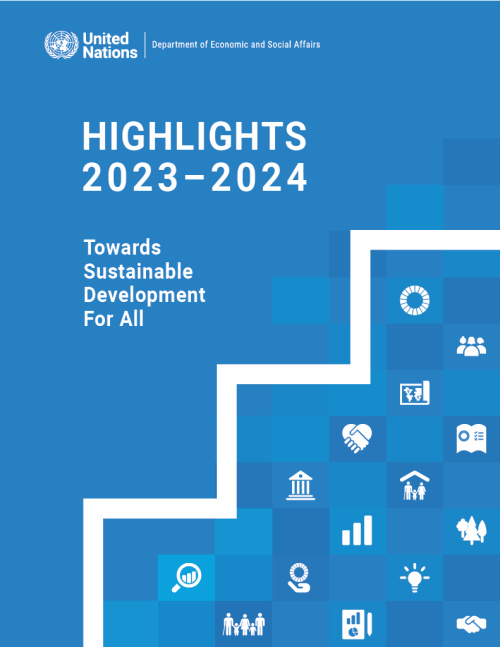
The UN DESA Annual Highlights report is a tool to communicate the contributions of the Department to the realization of internationally agreed development goals and shared social, economic, and environmental aspirations. It showcases the Department’s role in gauging trends, building capacities, and shaping solutions. UN DESA Highlights 2023–2024 covers activities over the period of the 78th Session of the General Assembly (September 2023 – August 2024) and reflects the Department’s response to the set priorities and expressed needs of Member States. Seven (7) thematic chapters showcase how UN DESA put its expertise to the task of supporting Member State efforts to implement the 2030…
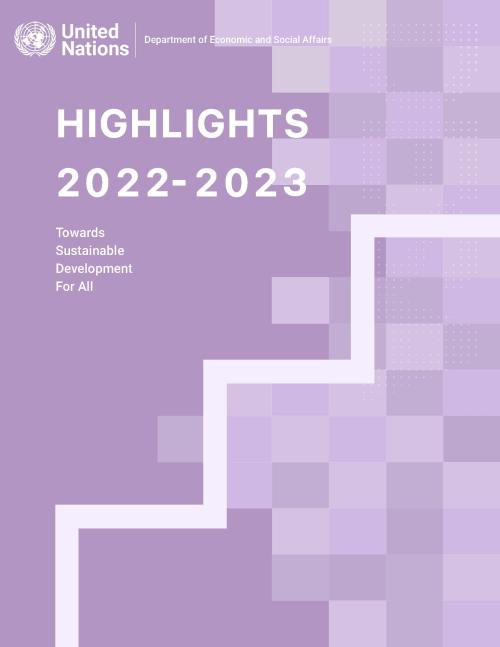
The UN DESA Annual Highlights report is a tool to communicate the contributions of the Department to the realization of internationally agreed development goals and shared social, economic, and environmental aspirations. It showcases the Department’s role in gauging trends, building capacities, and shaping solutions. UN DESA Highlights 2022-2023 covers activities over the period of the 77th Session of the General Assembly (September 2022 – August 2023) and reflects the Department’s response to the set priorities and expressed needs of Member States. Seven (7) thematic chapters showcase how UN DESA put its expertise to the task of supporting Member State efforts to implement the 2030…
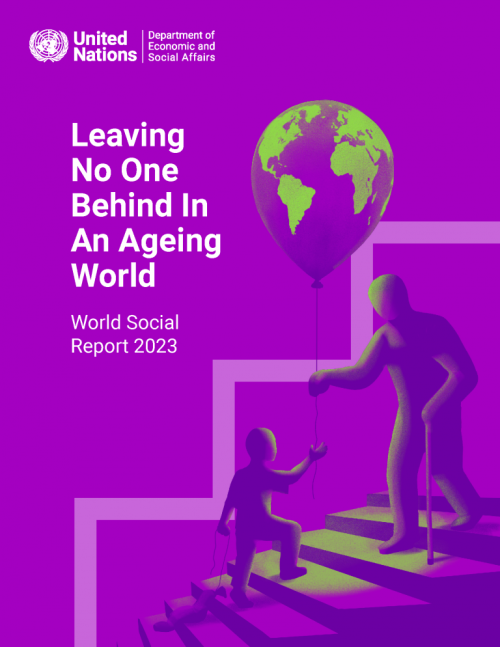
Population ageing is a defining global trend of our time. People are living longer, and more are older than ever before. Spectacular improvements in health and survival and reductions in fertility have driven this momentous shift, which has begun or is expected to begin soon in all countries and areas.
This change brings both challenges and opportunities as countries strive to achieve the Sustainable Development Goals (SDGs). In 2022, the world marked the twentieth anniversary of the adoption of the Madrid International Plan of Action on Ageing. To commemorate this landmark, the World Social Report 2023 explores the economic and social implications of the ageing of the human…
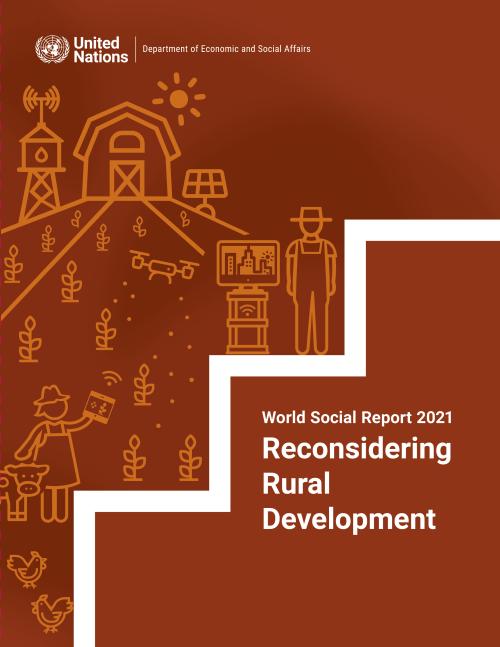
New approaches made possible through improved access and Internet connectivity can raise the standard of living for approximately 3.4 billion people living in rural areas, without them having to migrate to cities, according to the newly released 2021 World Social Report “Reconsidering Rural Development.”
The COVID-19 pandemic, together with already persistent high levels of poverty and inequalities, are threatening to stall progress for the world’s rural populations. But the pandemic has also proven that new technologies can enable rural populations to flourish, ending the rural-urban divide.
UN Secretary-General António Guterres said the new technologies opened up new…
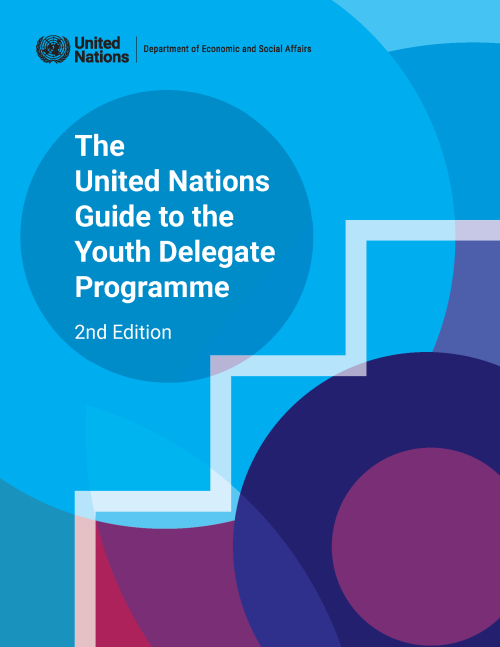
This guide has been developed as a resource for Member States to provide information about the inclusion of youth in their delegations and offers ideas for those with existing youth delegate programmes on how to potentially strengthen them. It includes sections on establishing a programme, suggestions for possible roles of youth delegates and practicalities to be considered.
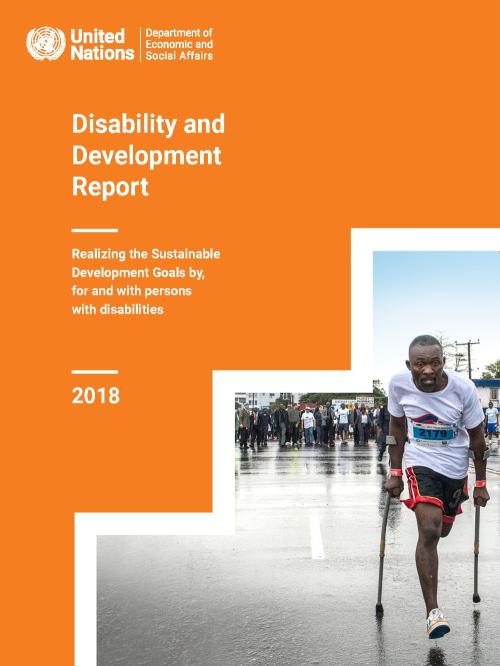
UN Disability and Development Report – Realizing the SDGs by, for and with persons with disabilities
The 2030 Agenda, pledging to “leave no one behind,” is an ambitious plan of action of the international community towards a peaceful and prosperous world, where dignity of an individual person and equality among all is applied as the fundamental principle, cutting across the three pillars of the work of the United Nations: Development, Human Rights and Peace and Security. It is critical to ensure, in this regard, the full and equal participation of persons with disabilities in all spheres of society and create enabling environments by, for and with persons with disabilities.
The UN Disability and Development Report – Realizing the SDGs by, for and with persons with…
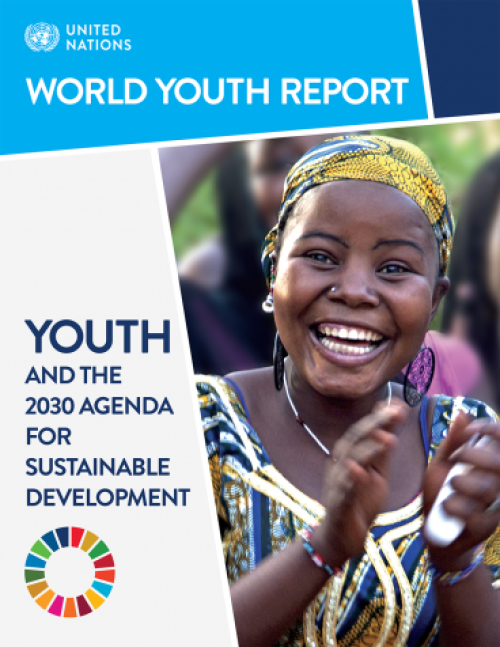
The World Youth Report on “Youth and the 2030 Agenda for Sustainable Development”, prepared by the United Nations Department of Economic and Social Affairs (UN DESA), examines the mutually supportive roles of the new agenda and current youth development efforts. The report provides insight into the role of young people in sustainable development in the context of the implementation of the 2030 Agenda for Sustainable Development and related frameworks, in particular, the Addis Ababa Action Agenda of the Third International Conference on Financing for Development and the World Programme of Action for Youth.
The Report considers the role the 2030 Agenda can play in enhancing youth…
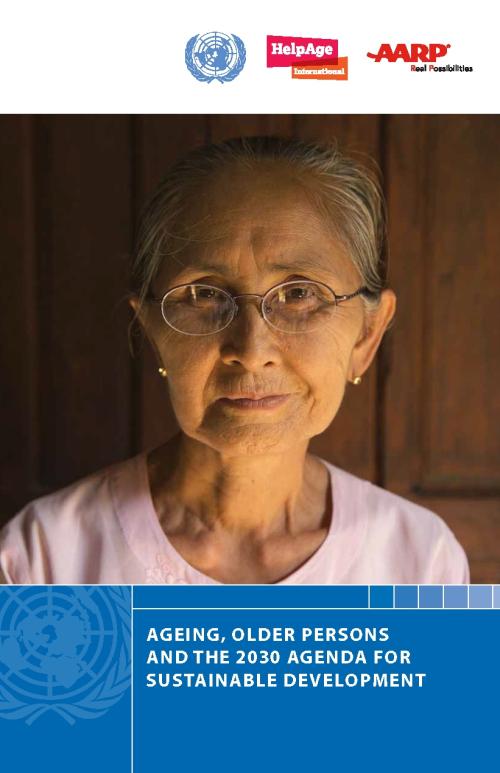
The 2030 Agenda for Sustainable Development sets out a universal plan of action to achieve sustainable development in a balanced manner and seeks to realize the human rights of all people. It calls for leaving no one behind and for ensuring that the Sustainable Development Goals (SDGs) are met for all segments of society, at all ages, with a particular focus on the most vulnerable—including older persons.
Preparing for an ageing population is vital to the achievement of the integrated 2030 Agenda, with ageing cutting across the goals on poverty eradication, good health, gender equality, economic growth and decent work, reduced inequalities and sustainable cities. Therefore, while…
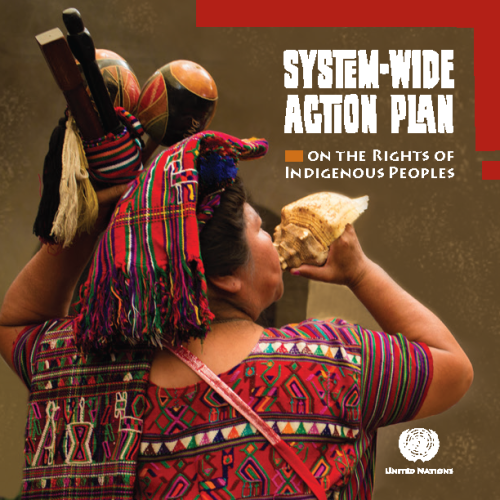
This action plan builds on the momentum and spirit of the 2014 World Conference on Indigenous Peoples and to this end will promote partnership and collaboration between the UN system, civil society organizations, and multilateral bodies such as regional development banks and human rights special procedures and commissions.
This system wide action plan will contribute to the fit for purpose agenda by ensuring stronger linkages between the normative and operational work of the United Nations, increasing coordination and coherence in addressing the rights of indigenous peoples. It calls for strengthened United Nations senior level engagement, encouraging work with Member…

In Africa, as in other regions, persons with disabilities are disproportionately likely to live in poverty and, too often, lack access to education, health care, employment opportunities, housing, social protection systems, justice, cultural expression and participation in political life. The ability of persons with disabilities to participate in society is often frustrated because physical environments, transportation and information and communications systems are not accessible.
In this context, a Toolkit on Disability for Africa has been developed by the United Nations Department of Economic and Social Affairs (UNDESA), Division for Social Policy and Development (DSPD). It is…
 Welcome to the United Nations
Welcome to the United Nations